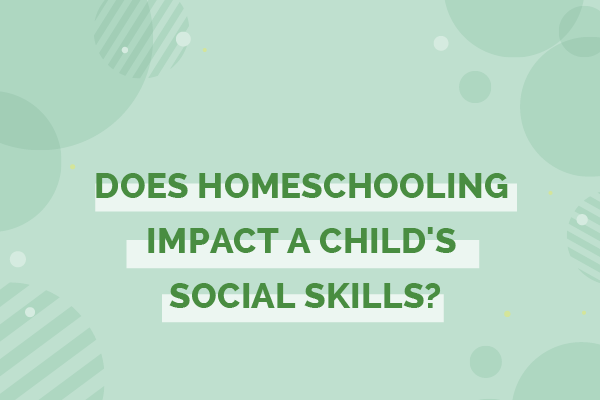
Does homeschooling impact a child's social skills?
The impact of homeschooling on children’s social skills has been the subject of much debate over the past two decades. The public opinion is effectively divided, as many have reservations against homeschooling, with the lack of social development being one of the main concerns, while homeschooling advocates see no real impediment to children’s social skills, even if they are privately educated at home.
Parents who feel that a home setting is not recommended for social development argue that there is no peer interaction throughout a child’s day. The experience of meeting others their own age, forming friendships and solving disagreements all contribute to building children’s social skills. Homeschooling does not help in this context, according to its critics. The concern is that homeschooled children may remain in a very sheltered environment for too long, thus not building enough resilience to interact with different kinds of people outside their direct circle. The world is defined by diversity of thought, religion, education, among other differences, and proper exposure to the world might not be easy in the cocooned setting of homeschooling.
Homeschooling supporters counter-argue that studying at home does not necessarily impose a secluded life on the children. The parents of homeschoolers make sure to use diverse teaching resources, such as libraries, field trips and museums, to help children acquire study skills, in addition to traditional schoolbooks. Parents can organize group activities as well, where homeschooled children come together. The objective here is to make sure that children socialize, and form meaningful relationships, not necessarily with others their own age though.
Homeschooling advocates also deem social development in the traditional school setting as not necessarily recommendable or worth looking up to. Homeschooled children are not subjected to peer pressure, bullying, the pettiness of “groupism”, the compulsion to “fit in” and other negative influences found in schools. Given that this kind of baggage tends to accompany the formation of relationships, parents feel that, in comparison, the social skills acquired while studying at home look more favorable to a child's mental health.
The topic has drawn many arguments and counterarguments, with critics and advocates presenting examples of social “rejects” who attended traditional schools, on one side, and homeschooled children who seem unable to socialize with people their own age, on the other. However, enough studies have suggested that the social development of each child is determined by their individual circumstances. This means that homeschooled children who have experiences enough social interactions can very well develop the same level of social skills as children who’ve attended a traditional school. It is important to note that traditional schooling is not the only environment for youths to “socialize”. Other outlets may include sports, summer camps, music or art classes, the scouts, religious activities, volunteer work, playdates, etc.




